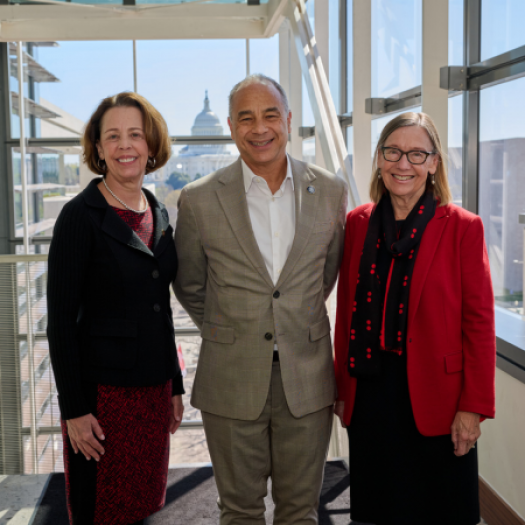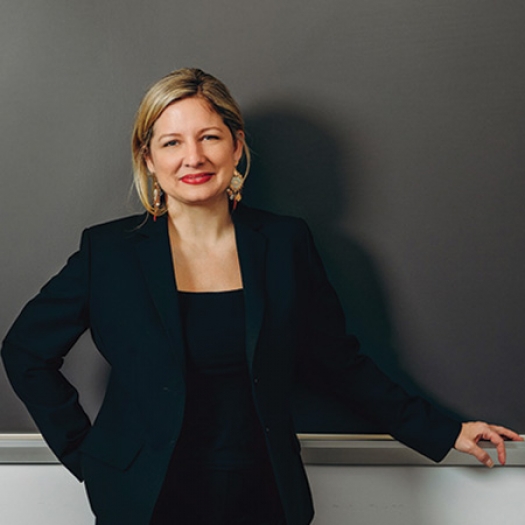Learn how to support students, faculty, and staff to engage in discourse across political and other forms of difference.
Dialogue Across Difference is designed for K-12 and higher education educators, administrators, and leaders from all disciplinary backgrounds looking to deepen their understanding of issues surrounding civic discourse in educational settings. Learn from experts about the importance of supporting difficult conversations in polarized times and ways to address the challenges this presents.
What Sets Us Apart
About the Program
In an increasingly polarized world where political division and echo chamber discourse are on the rise, supporting students to engage with one another across their differences is more important than ever. But how do educators begin to address the many challenges this work presents?
Application Deadline
- Priority Application Deadline: June 1, 2024
- Final Deadline: July 31, 2024
Program StartSeptember 10, 2024
Length & Time Commitment~40 hours over 4 months
Certificate OfferedPenn GSE Certificate of Participation
CreditsWaiting on confirmation to offer 4 Continuing Education Credits - Will be announced on May 1, 2024
40 Pennsylvania ACT 48 Credits
Cost
- Standard rate: $1,500
- 15% discount available for:
- Applications received by June 1st
- Penn GSE and Center for Professional Learning alumni
- Penn employees
- Groups of 5+ from the same organization, contact us prior to applying.
Ideal Candidates
- K-12 teachers and administrators
- Higher education faculty and administration
- Non school-based educators
- Online
This program follows a unique three-part model that is designed to align with research-based best practices in teacher professional development.
- In Part I: Explore, you will asynchronously engage with a carefully curated curriculum to deepen your own understanding of the program’s topics.
- In Part II: Envision, attend live virtual workshops led by expert Penn faculty and experienced practitioners, and create a plan for applying your new knowledge and skills.
- In Part III: Enact, implement your plan in your classroom or school. At the same time, attend live virtual small group meetings with colleagues to connect, collaborate, reflect, and learn from each other's experiences.
Learning Goals:
- Understand what civic discourse is and why it is important in a democratic society
- Explore the line between charged discussion and harmful speech
- Develop skills and strategies to communicate with parents and other stakeholders about the importance of this work
- Develop skills and strategies to prepare students to have difficult conversations
- Develop skills and strategies to support teachers in facilitating difficult conversations
Program Schedule
| Dates | Time Commitments | Session |
| September 10, 2024 | Asynchronous module ~10 hours | Part I: Explore - Learners will deepen their understanding of issues related to civic discourse in school by exploring resources on our online learning platform. |
| TBD | TBD, 2 hours | Part II: Envision - Learners will engage in a series of live virtual workshops. Workshop dates, topics, and facilitators will be announced by May 1, 2024. |
| TDB | TBD, 2 hours | |
| TBD | TBD, 2 hours | |
| November - December | Four synchronous sessions ~4 hours of work for each session Learners will be organized into groups based on their time zones and availability. Specific dates and times will be scheduled after July 31, 2024. | Part III: Enact - Learners will prepare and implement a product inspired by the workshops and resources in their local context — such as an activity, structure, or policy that supports having challenging conversations in their classroom or school. Learners will also participate in live virtual small group meetings to debrief their successes and challenges, and connect with fellow practitioners who share a commitment to this important and complex work. |
What Alumni Are Saying About Similar Programs
“It has given me a whole new way to think about how to help my students learn.”
“This program is extremely creative, thought provoking, and relevant. There are very few programs like this out there.”
“I feel reenergized after participating.”



